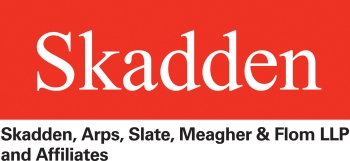Both U.S. and European Union (EU) law require that certain swaps and derivatives trades take place only on approved trading platforms. On October 13, 2017, Commodity Futures Trading Commission (CFTC or Commission) Chairman J. Christopher Giancarlo and Valdis Dombrovskis, the European Commission's (EC) Vice President for Financial Stability, Financial Services and Capital Markets Union, announced a common approach to their respective mandates for trading on certain derivatives trading venues.1 The CFTC and the EC have recently taken the steps necessary to implement the announced common approach. As a result of the CFTC's and EC's actions, each jurisdiction's market participants can satisfy the applicable swaps or derivatives trading mandate by transacting on certain identified trading platforms in the other jurisdiction.2 Absent these actions, swap dealers and traders would have faced a badly fragmented market when the EU's trading obligation takes effect on January 3, 2018.
The Commodity Exchange Act (CEA) requires counterparties to execute certain swap transactions on a designated contract market (DCM), a registered swap execution facility (SEF) or a SEF that is exempt from registration.3The CFTC may exempt, conditionally or unconditionally, a SEF from registration if the CFTC finds that the facility is "subject to comparable, comprehensive supervision and regulation on a consolidated basis by ... the appropriate governmental authorities in the home country of the facility."4
On December 8, 2017, the CFTC issued an order determining that "multilateral trading facilities"5 (MTFs) and "organised trading facilities"6 (OTFs) authorized within the EU are subject to comparable, comprehensive supervision and regulation on a consolidated basis by the appropriate governmental authorities within their respective home countries. The CFTC's order exempts a list of 10 MTFs and six OTFs from the requirement to register as a SEF. As a result, beginning January 3, 2018, market participants will be able to satisfy the CEA's swaps trading mandate by transacting on these MTFs and OTFs. Additionally, for these MTFs and OTFs, participation by a U.S. person will not trigger a requirement that the trading venue register with the CFTC as a SEF.7
The EU's corresponding trading obligation will take effect on January 3, 2018. Anyone subject to the EU's trading obligation must execute certain swap transactions on regulated markets, MTFs, OTFs or certain third-country (like the U.S.) trading venues.8 Qualifying third-country trading venues are subject to an equivalence regime. To meet the EU requirements, the EC must determine that the legal and supervisory framework of that third country ensures that a trading venue authorized in that country complies with legally binding requirements that are equivalent to the EU's requirements for regulated markets, MTFs and OTFs.9 Third-country trading venues must also be subject to effective supervision and enforcement in that third country, and the third country must provide an effective equivalent system for the recognition of trading venues authorized under the Markets in Financial Instruments Directive.10
Implementing the common approach, the EC adopted a decision on December 5, 2017, finding that the legal and supervisory frameworks of the 14 DCMs and 23 SEFs listed in the annex to the decision meet the aforementioned criteria. As a result, market participants subject to the EU's trading obligation may satisfy it by transacting on these DCMs and SEFs.






